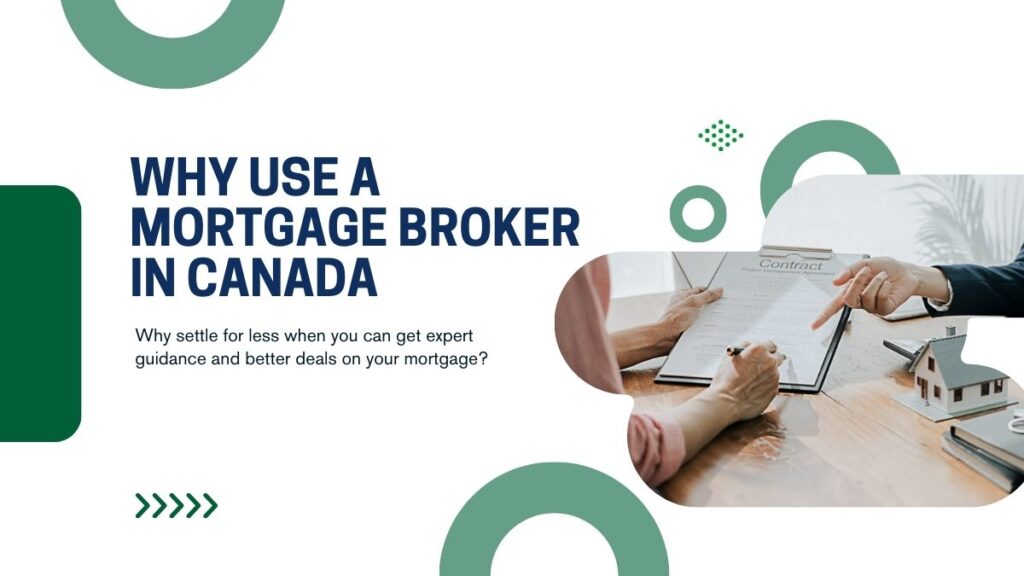Imagine standing in front of a buffet with only two items on your plate while dozens of dishes sit untouched. That is how many Canadians feel when they approach a single bank for a mortgage. It perfectly captures the core of the question: Why use a mortgage broker in Canada? With nearly 1 800 lender institutions across the country, the average borrower still contacts just one.
Mortgage rates across Canada in early May 2025 hover near historic lows. Insured five‑year fixed rates average 4.65 percent and variable rates sit around 4.10 percent. Banks still dominate, accounting for roughly 70 percent of new residential mortgage lending, with non‑bank lenders and credit unions sharing the remaining 30 percent.
Homebuyers face three familiar hurdles. First, choice is narrow when you go direct to one institution. Second, mortgage terminology such as amortization, porting and collateral charge can feel like a foreign language.
Third, securing the right financing often becomes a time drain with paperwork, follow‑ups and rate checks eating up evenings and weekends.
A mortgage broker is a licensed intermediary who shops among dozens of lenders on your behalf. Instead of one plate with two dishes, you gain a custom‑built platter of options. A broker’s job is to unlock choice, savings and expert support for Canadian borrowers.
Thesis: Working with a mortgage broker transforms the homebuying journey by delivering more choices, negotiating better rates and guiding you every step of the way often at no cost to you.
What Is a Mortgage Broker?
At its core, a mortgage broker connects you, the borrower, with lenders. Think of the broker as a navigator on a vast sea of mortgage products. You explain your needs such as down payment amount, income, and timeline, and the broker steers you toward lenders whose underwriting criteria match your profile.
By contrast, when you go directly to a bank or credit union, you see only that institution’s menu. You miss out on specialty products offered by monoline lenders, private funds, or boutique credit unions.
Mortgage brokers in Canada operate under provincial oversight. In Ontario, the Financial Services Regulatory Authority (FSRA) issues licences and enforces conduct standards.
Nationally, Canada Mortgage and Housing Corporation (CMHC) publishes guidelines on insured mortgages that apply to all lenders and brokers.
This regulatory framework ensures brokers adhere to rules on transparency, disclosure, and client suitability.
Why Use a Mortgage Broker in Canada?
Why settle for one option when a mortgage broker can give you more choices, better rates and expert help all at no extra cost?
Access to Multiple Lenders
A single bank might offer you four or five mortgage options. A broker typically works with 20 to 50 lenders. That includes Big Six banks, provincial credit unions, monoline players like First National or MCAP and private mortgage funds.
You gain access to insured mortgages, conventional uninsured mortgages, high‑ratio loans and niche products such as construction‑to‑permanent financing or green home mortgages.
Potential for Better Rates
Because brokers deliver volume to lenders they unlock wholesale pricing. Lenders often provide brokers rate sheets that include discounts not available to walk‑in customers.
A recent industry survey found borrowers working with brokers saved on average 0.15 percent on their mortgage rate compared with going direct.
Over a 25‑year amortization on a $500 000 mortgage that 0.15 percent discount translates into roughly $22 000 in interest savings.
Expert Guidance
Fixed versus variable. Open versus closed terms. Porting versus refinancing. Brokers demystify these choices. They analyze your income, down payment, credit profile and future plans to recommend a tailored mortgage strategy.
That level of personalization is hard to replicate if you click through a bank’s online application.
Time Savings
Your broker handles the paperwork, status checks and follow‑up calls. Rather than chasing a bank underwriter for missing documents you receive one consolidated update from your broker.
That can shave days or weeks off the approval timeline.
Client‑First Focus
In most cases you pay no fees. Brokers earn a commission from the lender once your mortgage closes. Their duty is to find the best fit among their panel of lenders rather than push one institution’s products.
That alignment of interest means you get recommendations driven by your needs not by internal sales targets at a bank branch.
Cost of Using a Broker
In Canada, it’s common for the lender to pay the broker’s commission, which is usually between 0.70 percent and 1.20 percent of the mortgage amount. You don’t pay anything out of pocket.
When Fees Might Apply
Fees can apply in some cases. For example, private mortgages or second mortgages might have broker fees paid by the borrower.
Specialty services, like setting up an interest-only commercial mortgage, may also involve upfront fees. Brokers must clearly explain any fees before you sign anything.
Is It Worth It?
Most of the time, using a broker is cost-effective. Brokers work with a lot of lenders and can often find better deals, sometimes saving you more than what the broker’s commission would cost.
For example, a lower interest rate could save you money over the life of your mortgage, making it worth the broker’s fee.
Avoid Extra Bank Fees
Working with a broker can also help you avoid extra fees that banks may charge, like setup or application fees. Brokers often help you find options where these fees are waived or reduced.
Broker’s Focus is You
Brokers earn their commission from the lender, but their goal is to find you the best mortgage deal for your needs.
They’re not pushing a specific bank’s products but working to find the right fit for you. Since their pay is based on the mortgage size, they have an incentive to make sure you get a deal that works for your budget.
No Hidden Fees
Before you move forward, brokers will clearly explain any costs. They won’t surprise you with hidden fees, so you’ll know exactly what to expect before you agree to anything.
Ideal Situations for a Broker
Not everyone needs a mortgage broker, but in certain situations, having one can make a big difference. Whether your finances are a bit complex or you’re just not sure where to start, a broker can help you find the right path and avoid costly mistakes.
You’re a first‑time buyer
If you’re new to home buying, a broker can walk you through down payment options, incentive programs and getting pre‑approved.
You’re self‑employed or a contractor
When your income paperwork looks different, brokers know which lenders will be flexible and how to present your earnings.
You’re a new Canadian
Without a long Canadian credit history, a broker can match you with lenders who understand newcomer profiles.
You’ve had credit hiccups
If you’ve had past consumer proposals or limited credit files, brokers can find programs designed to help you rebuild.
You’re refinancing or renewing
Instead of sticking with your current lender’s offer, a broker can shop the whole market to get you a better deal.
You’re an investor
Whether it’s a second home, multi‑unit building or vacation property, brokers know the right lenders and products for your investment goals.
Questions to Ask
When you interview a potential broker, be ready to ask:
Are you licensed in my province and in good standing?
Which lenders and product types do you represent?
How and when are you paid? Will I incur any fees?
Under what scenarios might additional costs arise?
Can you illustrate the potential savings versus going direct to a bank?
A reputable broker will welcome these questions, provide clear written disclosures and illustrate cost comparisons.
Choosing the Right Broker
Not all brokers are the same, and picking the right one can make the whole process smoother and less stressful. It’s important to find someone who understands your needs, explains things clearly, and puts your best interests first.
Check licensing and history
Make sure your broker is properly licensed and in good standing. In Ontario you can look them up on the FSRA public register. Other provinces have similar online registries.
Find a specialist
Some brokers really know first‑time buyers. Others focus on self‑employed clients or private lending. Pick someone who understands your unique situation.
Read reviews and ask around
Check online testimonials or ask friends and family for recommendations. Honest feedback will tell you how reliable and responsive a broker is.
Notice how they communicate
In your first chat, did they explain things clearly? Did they really listen to your goals? Good back‑and‑forth is a strong sign they’ll keep you in the loop.
Misconceptions
There are a lot of myths out there about mortgage brokers that can make people hesitant to work with one. Let’s clear up some of the biggest misconceptions and show you why working with a broker could actually be the best choice.
Brokers cost me more
For regular residential mortgages, brokers are paid by the lender. You don’t pay anything extra.
They only work with bad credit
Brokers work with all kinds of credit. They can find great rates for clients with good credit and also help those who need a bit of support.
You still need a bank.
Brokers handle everything from start to finish. They work with all the parties involved, like lawyers and insurers, so you only need to talk to one person.
Brokers only offer a limited range of options
Brokers work with many lenders, so you have a lot more options compared to just one bank.
Brokers are just middlemen
Brokers do more than pass along information. They help you find the best deal, negotiate rates, and guide you through the whole process.
It’s quicker to go directly to a bank
It might seem faster to go to a bank, but brokers often speed things up by handling paperwork and follow-ups. They help keep everything moving so you don’t have to chase things down.
Final Thoughts
Working with a mortgage broker gives you more choice, better rates, honest advice and saves you time, often without any cost to you. Buying a home or refinancing is a big step, so why stick to one lender when a broker can show you so many more options?
Want to get started?
Book a free session with one of our mortgage experts. Just have your income details, credit score, and questions ready, and we’ll walk you through everything.
Call us at +1-844-354-3033 for a quick, friendly chat that could save you thousands.
Additional Resources
Ontario FSRA Broker Registry
CMHC Mortgage Loan Insurance Guidelines
AJP Mortgage Calculator (estimate payments and amortization)
Budgeting Worksheet (track your down payment savings)
Glossary of Mortgage Terms (amortization, porting, penalty, collateral charge)


